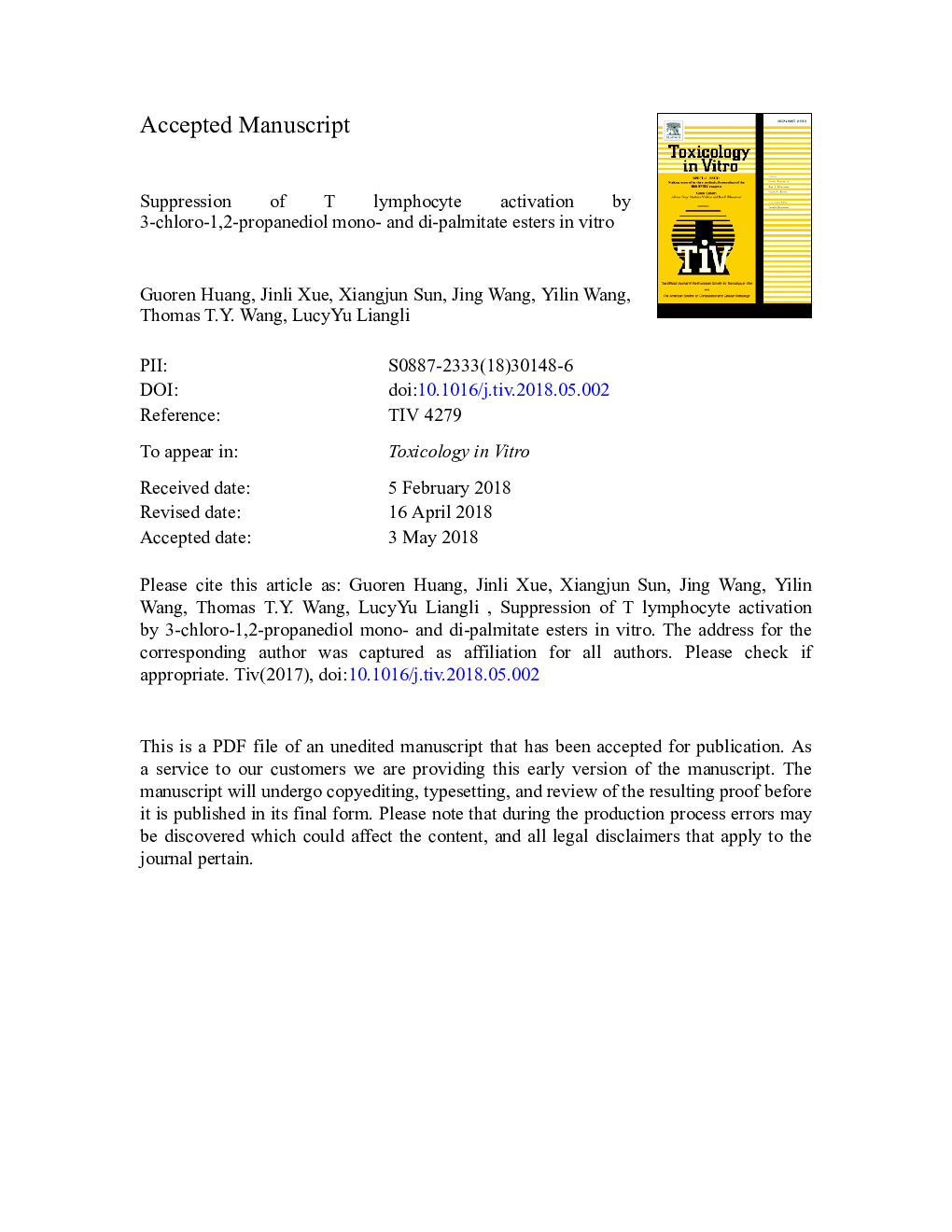| Article ID | Journal | Published Year | Pages | File Type |
|---|---|---|---|---|
| 8553743 | Toxicology in Vitro | 2018 | 44 Pages |
Abstract
This study investigated whether and how 3-chloro-1,2-propanediol (3-MCPD) fatty acid esters, a group of food contaminants formed during processing, might inhibit the immune system through suppressing T lymphocyte activation for the first time. Three 3-MCPD esters including 1-palmitoyl-3-chloropropanediol (1-pal), 2-palmitoyl-3-chloropropanediol (2-pal), and1,2-dipalmitoyl-3-chloropropanediol (dipal) were selected as the probe compounds to test the possible effects of fatty acid structure on their potential immune inhibitory effect. The results showed that 1-pal and 2-pal, but not dipal, significantly suppressed ConA-induced T lymphocyte proliferation, cell cycle activity, Th1 and Th2 cytokine secretion, CD4+ T cell populations, and the ratio of CD4+/CD8+ T cells under the experimental conditions. Moreover, Western blotting and immunofluorescence analyses revealed that 1-pal and 2-pal could inhibit the activation of ConA-stimulated mitogen-activated protein kinase (MAPK) and nuclear factor-kappa B (NF-κB) signaling pathways. In addition, 1-pal significantly suppressed DNFB-induced delayed-type hyper sensitivity (DTH) reaction characterized by the increased ear thickness and IFN-γ production in mice. These observations indicated that 3-MCPD esters exerted a negative effect on T lymphocyte-mediated immunity, and the immunosuppressive activities of 3-MCPD monopalmitates were stronger than 3-MCPD dipalmitate.
Related Topics
Life Sciences
Environmental Science
Health, Toxicology and Mutagenesis
Authors
Guoren Huang, Jinli Xue, Xiangjun Sun, Jing Wang, Yilin Wang, Thomas T.Y. Wang, Liangli (Lucy) Yu,
